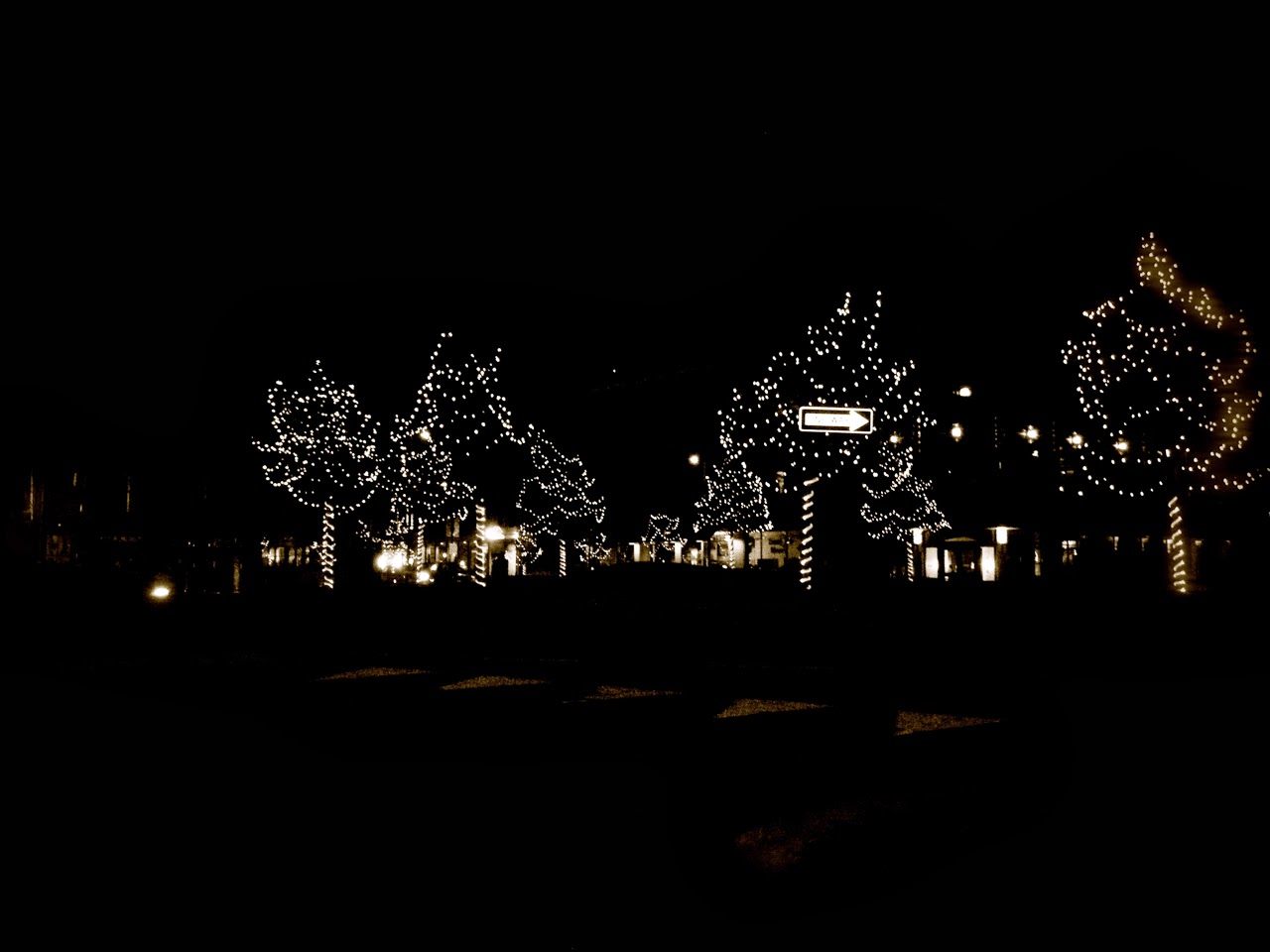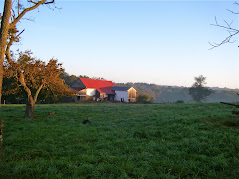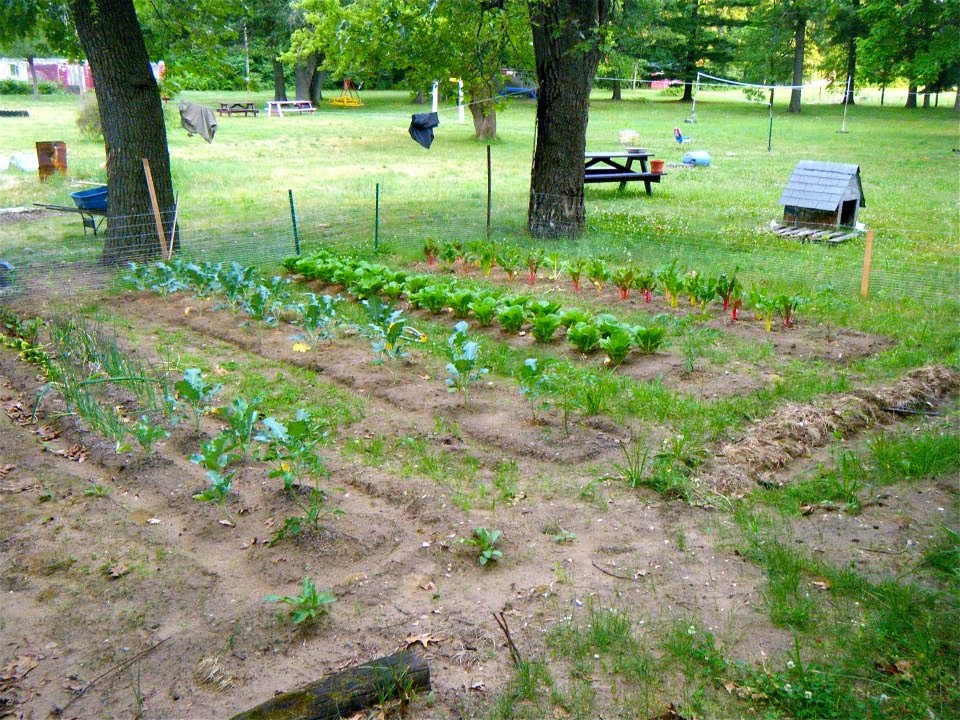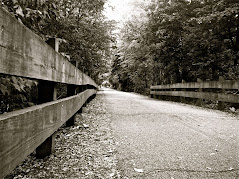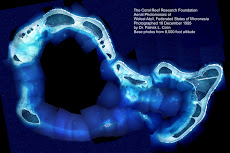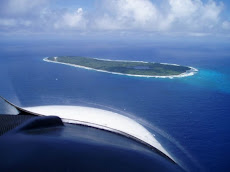This is the level my language instructor graded me at following the test we were administered this past Thursday. I'm excited about this, because it is one step up from where we are required to be by Peace Corps at the end of training. So now I'd like to share with you the technical definition for an 'intermediate--mid' speaker of a foreign language. It reads in the 'Peace Corps Volunteer On-going Language Learning Manual' as follows:
"Intermediate--Mid
Can participate in simple conversations about some survival needs and social traditions. Can discuss topics beyond basic survival, such as personal history and leisure time activities.
Beginning to use correct grammar constructions such as subject-verb and noun-adjective agreement.
*Then comes a check list of things I can say I'm capable of*
I can handle questions about my marital status, nationality, occupation, age and place of birth.
I can order a simple meal from a restaurant menu.
I can ask for or tell the time, date, and day of the week.
I can handle simple business at the post office, a bank, and the pharmacy.
I am beginning to speak more correctly; my subjects and verbs generally agree.
I can perform at least one task at the Intermediate--High level."
I think this roughly equates to a four year-old's level of language proficiency. Sweet.
Sunday, November 8, 2009
Friday, November 6, 2009
It's official.
I've been sworn-in, and now I'm a Peace Corps Volunteer (PCV for short). Our ceremony was last night - at a local tavern, no less.
The soon-to-be PCVs gave intro speeches in their new languages (absolutely butchered mine, but my host parents said they understood me), we did performances (singing, dancing, chanting) and the girls that did local dances ROCKED!, the Peace Corps staff member that swore us in gave a really nice speech (she actually quoted my aspiration statement, anonymously, in it - when she got to the part where I quoted 'sociologist Irvin Goffman' it kind of gave away whose aspiration statement she was using, though). Then we did the PC Oath and the Yap State Oath, and it was official.
There was good food, some beverages, a local band, Eriks and I were rocking our loin cloths and the girls were also traditionally attired (aka, topless but well covered by an immense amount of leis. Not trying to be dirty here, they looked great. Beautiful leis, traditional grass skirts for main island PCVs, lavalavas for Woleai PCVs and a frond skirt for the Ulithi PCV. We had delicious food and great people there to celebrate with us. It was a blast. I'm so grateful to have made it here, but I'll be even more grateful to make it to Woleai.
Be well, readers. You can trust I'll be doing the same.
The soon-to-be PCVs gave intro speeches in their new languages (absolutely butchered mine, but my host parents said they understood me), we did performances (singing, dancing, chanting) and the girls that did local dances ROCKED!, the Peace Corps staff member that swore us in gave a really nice speech (she actually quoted my aspiration statement, anonymously, in it - when she got to the part where I quoted 'sociologist Irvin Goffman' it kind of gave away whose aspiration statement she was using, though). Then we did the PC Oath and the Yap State Oath, and it was official.
There was good food, some beverages, a local band, Eriks and I were rocking our loin cloths and the girls were also traditionally attired (aka, topless but well covered by an immense amount of leis. Not trying to be dirty here, they looked great. Beautiful leis, traditional grass skirts for main island PCVs, lavalavas for Woleai PCVs and a frond skirt for the Ulithi PCV. We had delicious food and great people there to celebrate with us. It was a blast. I'm so grateful to have made it here, but I'll be even more grateful to make it to Woleai.
Be well, readers. You can trust I'll be doing the same.
Wednesday, November 4, 2009
Did I say the first three weeks of training flew by?
Written Nov. 4th – Colonia, Yap
So here we are, y'all. It's the last week of training. We take our language proficiency test tomorrow to ensure we have gained the minimal ability to communicate that Peace Corps requires. Apparently that amounts to being able to hold a five minute conversation. I think I might be able to swing that, maybe – we'll see.
I really thought the first three weeks of training shot passed quickly, but somehow the pace managed to icked up in Phase II. Six more weeks have gone by, training is almost over, and my life as a volunteer is cropping up on the horizon. Guess I'll try to summarize my time in Yap proper (I've been working on this post, off & on, for a few weeks, so some parts are a little better developed than others, just a heads up).
We touched down on Saturday the 26th at Yap International Airport at about 9pm. I love how the international airports here are absolutely tiny – about the size of small town airstrips in the states, not quite like the internationals I'd think most of us are used to. The 'security' here is great too – one or two guys sitting by the doors or 'no access' areas, sometimes uniformed. After clearing customs (similar in scale to the security), we were greeted by two young ladies handing out traditional leis, and they were topless. Traditional Yap society is a bare chested one, and (I'm not trying to be dirty or disrespectful here, this is sincere) with this custom and many other unique practices, the Yapese have done an impressive job of retaining their cultural identity while also integrating useful components from other peoples (namely the Spanish, Germans, Japanese and U.S. Americans - the nations that have occupied this land at one time or another).
Our first night was spent in the ESA Bay View Resort, which included a hot shower. I wasn't particularly missing hot showers in this very warm climate, but it was still nice. The morning was very relaxing and slow paced. I sat on my balcony, watched the sun rise, journaled and listened to music. One-by-one we trickled down to the hotel restaurant and – without coordinating – ordered the same breakfast (the cheapest one on the menu saw that one coming, huh?). This worked out for most of us, unfortunately though, one of the gals thinks she got a bad egg and spent the next day trying to 'return it', if you catch my drift. I napped for a while after breakfast and got ready for check out.
Host family introductions were next. They came to get us at the hotel and took us home – felt like we were a bunch of orphans being claimed by new families. Oddly enough, it also felt a little like picking teams in elementary school – 'Oh god, don't let me be last!' This particular Sunday was a blackout day for Yap, where they shut down the power for eight hours or so in the middle of the day. Not a lot was going on at the house. The family and I did initial introductions, some vocab building for me (till my head nearly exploded and I asked to stop), and – no joke – I spent the rest of the day napping off and on, roughly six hours. Turns out I was tired.
Monday morning saw the return of training with a intro to Yap State thrown in there. We met our Language and Cross Cultural Facilitators (LXFs) who would be conducting our language training, showing us some local cultural skills and giving us insights into the social norms of our new environment. Tino – short for Augustino – is the Woleaian group's LXF. He's a middle-aged guy, built like a linebacker, who absolutely loves to laugh, even at times when I can't seem to find the joke. He's a good guy and very patient with our slow language acquisition, which is very helpful.
Most of our mornings over the six weeks are spent with Tino, trying to wrap our brains around this new and very different language. The sounds, the structure, the meanings, the way things are talked about – all different. Yet through this process what I'm really gaining is an appreciation of is just how damn hard it must be to pick up English. Every time I notice two different words that sound the same or am presented with a word that has multiple meanings, I get a little pissed off. Every time there's an irregular word formation (verb tenses, possessive indicators, etc.), I get pissed off. But there are so many more crazy, unintelligible mishmash, bullshit irregularities in English garnered from the many other languages that feed into it. Makes it hard to focus on the challenge of picking up a language that is more or less contained to just itself – some Spanish, German, Japanese and English influence, but it's really just vocabulary, not grammar. What I'm saying is, this is tough, but I realize it could be worse, and I'm glad it isn't.
Aside from language training, we've met with the Department of Education (I'm going to be teaching in Woleai, remember?), with environmental groups, the youth department, and a women's group leader. We've had panel discussions with current volunteers and Peace Corps staff, talked about cultural differences, and asked everybody who'd answer about diet and exercise. We've heard more about the intricacies of dating in a culture that hides romance than I was ever interested to, and talked to death the differences between being a male volunteer and being a female volunteer (the short answer is, as one volunteer who recently finished her service said, 'Guys can do whatever the f*#$ they want!' Yeah, I get the long end of the stick on this one, along with a little resentment – apparently – from some of the female volunteers). I'm sure all of these sessions were chalked full of useful information and will come in handy at some point over the next two years, but I'm ready to stop talking/hearing about what life will be like here and to start living it.
Highlights from the rest of training have been the 'cross-cultural' sessions. In these we are taught local skills – climbing palm trees, picking coconuts, husking coconuts, opening and grating coconuts, digging up root vegetables (specifically tapioca), peeling and cooking tapioca, and gutting, cleaning and cooking fish. Aside from the coconut business, I feel like I was already capable of the other tasks we've covered, but going out as a group and spending time with the people here has been amazing. In Pohnpei and Yap, the locals have been phenomenally welcoming and kind, very patient with us and just genuinely interested in who we are.
For the coconut day, we went to a small community on the bay in Colonia. We met some folks from the outer islands and then had demonstrated and explained to us the proper method of climbing a palm tree to get coconuts, how to pick them and how to cut steps into the tree. Tino did the demonstration. I went up after him, and as my pictures below show, I managed not to fall or hurt myself. I did, however, pick an overly young coconut that busted open upon hitting the ground. Eriks, the other male volunteer in my group, went next and met with even greater success – his coconut didn't break open when dropped. The trick is to spin it so it lands on its tip, not on its side. It's not culturally appropriate for women to climb trees around men in Micronesia, so the LXFs wouldn't let the gals take their turns. We moved onto husking coconuts. Everyone got a shot at that and successfully jail-broke a coconut from its husky prison. The next step is to open the coconut, which you do by smacking the 'backbone' – a sweet spot on all coconuts where a solid blow will split the shell open – with a machete. I did feel pretty awesome, until the small 70 year old lady did it better than me. We toasted to our success with halves of coconut shells and swigged the sweet oily water. Then we were shown the proper technique for getting the meat out with a knife and with a grater.
The tapioca day was more straightforward – dig up the roots, replant the remaining stem, peel, clean and boil. But a lot of good natured joking took place, the mud on the roots stunk like shite (I'm guessing a 50-50 split b/w poop and dirt), and Eriks and I marveled at our uncanny ability to grill up tasty fish without lifting a finger (a couple local gals started the fire and cooked the fish, though it was supposed to be our job).
This past Saturday, we took a boat out, saw some more of the island, went to the northern municipality of Maap (pronounced 'Mop'), did some snorkeling while having dangerous reef fauna pointed out, and learned how to pull clams off the reef, open them and which parts are good to eat. They are go-ooood when fresh, salty and chewy. Once we were done cooking our weak white skin (my shoulders are still a bit tender), we headed to the shore. There we gutted and cleaned fish, goofed around on a rope swing, the gals made local plates out of palm fronds (Eriks and I worked on gathering the fronds, though what we fetched didn't end up being needed), and we had a feast of rice, fish, bbq chicken, hot dogs, and pasta salad. We sat around for a little while chatting and then loaded up to head home. Seven of us piled into the back of a pick-up with a cooler, our life-vests and a couple little girls. One of them is our Program Assistant, Regina's daughter (Regina is our supervisor here in Yap). The other girl, I hadn't seen before – very cute, but she's a total stone waller! We made funny faces (my primary means for connecting with children), did goofy things, said goofy things and she gave us the well-honed, poker-face of a professional gambler! I found that only by grabbing her feet or getting face-to-face with her could I coax out a smile. Even these tactics she eventually adapted to. She was a challenge, but when we did get her to giggle it was awesome. We were dropped off one-by-one, and as it was Halloween and American influence is pervasive, we got to see many trick-or-treaters clamoring on the streets. Most costumes were home made, but the odd store bought poked out here and there (the best I was an Incredibles uniform, shiny and complete with muscular padding).
Outside of training, I spend most my time with my host family, chatting, sitting around, playing with the kids, and on Saturdays we go to visit their family in an outer islander village called Gargee and work on the house they're building out there. It's getting pretty close to finished, with the roof going on now, but my host father, Callistus, doesn't think it'll be ready to move into until the start of next year. Speaking of my current host family, it's made up of six people: Callistus (my father, or temai in Woleaian), Julie (my mother, or silii), Leslyn (my sister, or mwangei), Linda (aunt – same word as mother), Lex and Myla (cousins, same as brother and sister). They are great people and have treated me wonderfully. Life with them is different from what is was in Pohnpei, but it's still very good. I help Lex with his homework, goof around with Myla (she's a through-and-through tomboy and a spitfire), practice my Woleaian with Callistus, Julie and Linda, and attempt to help Leslyn with her homwork, but she's not what you'd call 'interested' in my help. The family loves to hangout together, all the time. They watch movies (the cheerleading series 'Bring It On' is a big hit. 'In It to Win It' is the only one I've seen start to stop, so far though), prepare food, shoot the breeze, clean, you know, family things. It's cool to see how well they handle near 24/7 contact. That's pretty much how it is here for everyone, so it's life, it's what they know, but still. It's impressive.
So here we are. I'll soon be a Peace Corps Volunteer and will be heading off to Woleai to start my service. After years of thinking and talking about what I hope to do, I'll actually start doing it. Seems a little hard to believe. Harder to believe is that, after all this time, I'm still waiting to start! Sweet Hey-Zeus, it's about damn time! Thank you all for sticking through this journey with me. I really appreciate having you read along, posting comments (except those soliciting postcards from me or for me to follow their blogs – and in Spanish no less, what do you expect from me, guy?), and sending letters and packages. I'd also like to extend a big thanks to all of you who supported me when I was first trying to start this process, who encouraged me to pursue this path, never doubting I'd be able to do it or that I should. It made and continues to make a huge difference.
So here we are, y'all. It's the last week of training. We take our language proficiency test tomorrow to ensure we have gained the minimal ability to communicate that Peace Corps requires. Apparently that amounts to being able to hold a five minute conversation. I think I might be able to swing that, maybe – we'll see.
I really thought the first three weeks of training shot passed quickly, but somehow the pace managed to icked up in Phase II. Six more weeks have gone by, training is almost over, and my life as a volunteer is cropping up on the horizon. Guess I'll try to summarize my time in Yap proper (I've been working on this post, off & on, for a few weeks, so some parts are a little better developed than others, just a heads up).
We touched down on Saturday the 26th at Yap International Airport at about 9pm. I love how the international airports here are absolutely tiny – about the size of small town airstrips in the states, not quite like the internationals I'd think most of us are used to. The 'security' here is great too – one or two guys sitting by the doors or 'no access' areas, sometimes uniformed. After clearing customs (similar in scale to the security), we were greeted by two young ladies handing out traditional leis, and they were topless. Traditional Yap society is a bare chested one, and (I'm not trying to be dirty or disrespectful here, this is sincere) with this custom and many other unique practices, the Yapese have done an impressive job of retaining their cultural identity while also integrating useful components from other peoples (namely the Spanish, Germans, Japanese and U.S. Americans - the nations that have occupied this land at one time or another).
Our first night was spent in the ESA Bay View Resort, which included a hot shower. I wasn't particularly missing hot showers in this very warm climate, but it was still nice. The morning was very relaxing and slow paced. I sat on my balcony, watched the sun rise, journaled and listened to music. One-by-one we trickled down to the hotel restaurant and – without coordinating – ordered the same breakfast (the cheapest one on the menu saw that one coming, huh?). This worked out for most of us, unfortunately though, one of the gals thinks she got a bad egg and spent the next day trying to 'return it', if you catch my drift. I napped for a while after breakfast and got ready for check out.
Host family introductions were next. They came to get us at the hotel and took us home – felt like we were a bunch of orphans being claimed by new families. Oddly enough, it also felt a little like picking teams in elementary school – 'Oh god, don't let me be last!' This particular Sunday was a blackout day for Yap, where they shut down the power for eight hours or so in the middle of the day. Not a lot was going on at the house. The family and I did initial introductions, some vocab building for me (till my head nearly exploded and I asked to stop), and – no joke – I spent the rest of the day napping off and on, roughly six hours. Turns out I was tired.
Monday morning saw the return of training with a intro to Yap State thrown in there. We met our Language and Cross Cultural Facilitators (LXFs) who would be conducting our language training, showing us some local cultural skills and giving us insights into the social norms of our new environment. Tino – short for Augustino – is the Woleaian group's LXF. He's a middle-aged guy, built like a linebacker, who absolutely loves to laugh, even at times when I can't seem to find the joke. He's a good guy and very patient with our slow language acquisition, which is very helpful.
Most of our mornings over the six weeks are spent with Tino, trying to wrap our brains around this new and very different language. The sounds, the structure, the meanings, the way things are talked about – all different. Yet through this process what I'm really gaining is an appreciation of is just how damn hard it must be to pick up English. Every time I notice two different words that sound the same or am presented with a word that has multiple meanings, I get a little pissed off. Every time there's an irregular word formation (verb tenses, possessive indicators, etc.), I get pissed off. But there are so many more crazy, unintelligible mishmash, bullshit irregularities in English garnered from the many other languages that feed into it. Makes it hard to focus on the challenge of picking up a language that is more or less contained to just itself – some Spanish, German, Japanese and English influence, but it's really just vocabulary, not grammar. What I'm saying is, this is tough, but I realize it could be worse, and I'm glad it isn't.
Aside from language training, we've met with the Department of Education (I'm going to be teaching in Woleai, remember?), with environmental groups, the youth department, and a women's group leader. We've had panel discussions with current volunteers and Peace Corps staff, talked about cultural differences, and asked everybody who'd answer about diet and exercise. We've heard more about the intricacies of dating in a culture that hides romance than I was ever interested to, and talked to death the differences between being a male volunteer and being a female volunteer (the short answer is, as one volunteer who recently finished her service said, 'Guys can do whatever the f*#$ they want!' Yeah, I get the long end of the stick on this one, along with a little resentment – apparently – from some of the female volunteers). I'm sure all of these sessions were chalked full of useful information and will come in handy at some point over the next two years, but I'm ready to stop talking/hearing about what life will be like here and to start living it.
Highlights from the rest of training have been the 'cross-cultural' sessions. In these we are taught local skills – climbing palm trees, picking coconuts, husking coconuts, opening and grating coconuts, digging up root vegetables (specifically tapioca), peeling and cooking tapioca, and gutting, cleaning and cooking fish. Aside from the coconut business, I feel like I was already capable of the other tasks we've covered, but going out as a group and spending time with the people here has been amazing. In Pohnpei and Yap, the locals have been phenomenally welcoming and kind, very patient with us and just genuinely interested in who we are.
For the coconut day, we went to a small community on the bay in Colonia. We met some folks from the outer islands and then had demonstrated and explained to us the proper method of climbing a palm tree to get coconuts, how to pick them and how to cut steps into the tree. Tino did the demonstration. I went up after him, and as my pictures below show, I managed not to fall or hurt myself. I did, however, pick an overly young coconut that busted open upon hitting the ground. Eriks, the other male volunteer in my group, went next and met with even greater success – his coconut didn't break open when dropped. The trick is to spin it so it lands on its tip, not on its side. It's not culturally appropriate for women to climb trees around men in Micronesia, so the LXFs wouldn't let the gals take their turns. We moved onto husking coconuts. Everyone got a shot at that and successfully jail-broke a coconut from its husky prison. The next step is to open the coconut, which you do by smacking the 'backbone' – a sweet spot on all coconuts where a solid blow will split the shell open – with a machete. I did feel pretty awesome, until the small 70 year old lady did it better than me. We toasted to our success with halves of coconut shells and swigged the sweet oily water. Then we were shown the proper technique for getting the meat out with a knife and with a grater.
The tapioca day was more straightforward – dig up the roots, replant the remaining stem, peel, clean and boil. But a lot of good natured joking took place, the mud on the roots stunk like shite (I'm guessing a 50-50 split b/w poop and dirt), and Eriks and I marveled at our uncanny ability to grill up tasty fish without lifting a finger (a couple local gals started the fire and cooked the fish, though it was supposed to be our job).
This past Saturday, we took a boat out, saw some more of the island, went to the northern municipality of Maap (pronounced 'Mop'), did some snorkeling while having dangerous reef fauna pointed out, and learned how to pull clams off the reef, open them and which parts are good to eat. They are go-ooood when fresh, salty and chewy. Once we were done cooking our weak white skin (my shoulders are still a bit tender), we headed to the shore. There we gutted and cleaned fish, goofed around on a rope swing, the gals made local plates out of palm fronds (Eriks and I worked on gathering the fronds, though what we fetched didn't end up being needed), and we had a feast of rice, fish, bbq chicken, hot dogs, and pasta salad. We sat around for a little while chatting and then loaded up to head home. Seven of us piled into the back of a pick-up with a cooler, our life-vests and a couple little girls. One of them is our Program Assistant, Regina's daughter (Regina is our supervisor here in Yap). The other girl, I hadn't seen before – very cute, but she's a total stone waller! We made funny faces (my primary means for connecting with children), did goofy things, said goofy things and she gave us the well-honed, poker-face of a professional gambler! I found that only by grabbing her feet or getting face-to-face with her could I coax out a smile. Even these tactics she eventually adapted to. She was a challenge, but when we did get her to giggle it was awesome. We were dropped off one-by-one, and as it was Halloween and American influence is pervasive, we got to see many trick-or-treaters clamoring on the streets. Most costumes were home made, but the odd store bought poked out here and there (the best I was an Incredibles uniform, shiny and complete with muscular padding).
Outside of training, I spend most my time with my host family, chatting, sitting around, playing with the kids, and on Saturdays we go to visit their family in an outer islander village called Gargee and work on the house they're building out there. It's getting pretty close to finished, with the roof going on now, but my host father, Callistus, doesn't think it'll be ready to move into until the start of next year. Speaking of my current host family, it's made up of six people: Callistus (my father, or temai in Woleaian), Julie (my mother, or silii), Leslyn (my sister, or mwangei), Linda (aunt – same word as mother), Lex and Myla (cousins, same as brother and sister). They are great people and have treated me wonderfully. Life with them is different from what is was in Pohnpei, but it's still very good. I help Lex with his homework, goof around with Myla (she's a through-and-through tomboy and a spitfire), practice my Woleaian with Callistus, Julie and Linda, and attempt to help Leslyn with her homwork, but she's not what you'd call 'interested' in my help. The family loves to hangout together, all the time. They watch movies (the cheerleading series 'Bring It On' is a big hit. 'In It to Win It' is the only one I've seen start to stop, so far though), prepare food, shoot the breeze, clean, you know, family things. It's cool to see how well they handle near 24/7 contact. That's pretty much how it is here for everyone, so it's life, it's what they know, but still. It's impressive.
So here we are. I'll soon be a Peace Corps Volunteer and will be heading off to Woleai to start my service. After years of thinking and talking about what I hope to do, I'll actually start doing it. Seems a little hard to believe. Harder to believe is that, after all this time, I'm still waiting to start! Sweet Hey-Zeus, it's about damn time! Thank you all for sticking through this journey with me. I really appreciate having you read along, posting comments (except those soliciting postcards from me or for me to follow their blogs – and in Spanish no less, what do you expect from me, guy?), and sending letters and packages. I'd also like to extend a big thanks to all of you who supported me when I was first trying to start this process, who encouraged me to pursue this path, never doubting I'd be able to do it or that I should. It made and continues to make a huge difference.
Thursday, October 22, 2009
Photo Essay Explanation
Here it is - you're up to date. These photos move from my first morning in Colonia to photos from around town, to training (very important recorder and ball-in-a-cup practice included), to typhoon Perma, to our coconut tree climbing & coconut husking training, to working on my host family's new house in the outer islander village, to more shots around town, to our tapiocca (yes, like the pudding) digging and peeling day, to more shots around town (including a couple cool sunset/dead wood photos), and finishing with three of the girls here chewing beetle nut (local plant that has similar effects to chewing tobacco) & finally - what you've all been waiting for - me in a loin cloth. But it covers my ass! Take that!
Photo Essay Explanation
Oct. 23rd - Colonia, Yap
Sweet! Finally was able to borrow a computer that can post pictures - the internet here is soooooo slow, and my 'new' computer so poor at holding wireless connections, that this just hasn't been an option since the last time I posted photos. I hope you all enjoy getting these glimpses into what my life's been like in Micronesia, but if not, no sweat. I love putting them online any-dang-way.
So, this picks up after the previous one stopped. We've got placement day, then pics from the sakau night I described earlier, the hike to see Japanese guns from WWII on my host family's land, getting ready for & going to church, walking to training in the morning, water safety day (put on a lifevest, start a boat and don't drown), couple photos of interesting shirts at training (mine was given to me by my host father), my last days at 'home' in Pohnpei, a pic of us coming back from a rope swing our last day in Madolenihmw, and then the travel day to Yap.
Enjoy!
Sweet! Finally was able to borrow a computer that can post pictures - the internet here is soooooo slow, and my 'new' computer so poor at holding wireless connections, that this just hasn't been an option since the last time I posted photos. I hope you all enjoy getting these glimpses into what my life's been like in Micronesia, but if not, no sweat. I love putting them online any-dang-way.
So, this picks up after the previous one stopped. We've got placement day, then pics from the sakau night I described earlier, the hike to see Japanese guns from WWII on my host family's land, getting ready for & going to church, walking to training in the morning, water safety day (put on a lifevest, start a boat and don't drown), couple photos of interesting shirts at training (mine was given to me by my host father), my last days at 'home' in Pohnpei, a pic of us coming back from a rope swing our last day in Madolenihmw, and then the travel day to Yap.
Enjoy!
Subscribe to:
Posts (Atom)

























































